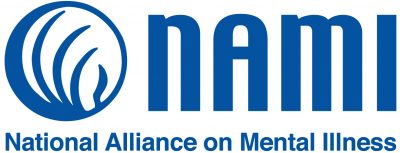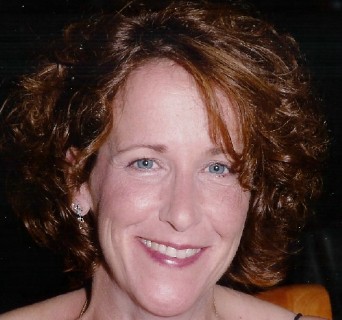
(7-12-18) This is the third blog about a telephone call conducted by a strategic consulting group hired by the National Alliance on Mental Illness that was held with parents of individuals with serious mental illnesses. A majority of the individuals on that call were members of the National Shattering Silence Coalition. As always, I welcome your opinion about this issue on my Facebook page. )
Dear NAMI Leaders – An Plea For Help For Families With Seriously Mentally Ill Loved Ones by Jeanne Gore
“I See An epidemic, an apartheid of the SMI – It Outrages Me!”
I have been struggling to save my son’s life for 16 years now.
My son suffers from (yes, “suffers” – the word NAMI no longer wants us to use in conversation) schizoaffective disorder and has been jailed twice, beaten by seven police officers in Burlington, Vt, missing, homeless, and hospitalized 43 times, all because he didn’t know he was sick and, most of his hospitalizations were not long enough to stabilize his condition. 
Everyday I read horrific, heart-wrenching stories from family members all across the country. This is why I became active in NSSC. Let me explain what we are doing and why we wish NAMI would follow our lead.
This week National Shattering Silence Coalition wrote a letter on behalf of Kristopher Rodriguez, who is in a jail in Florida where he has been for the last 10 years. He has been forced to eat his own feces. His mother, even though she has medical power of attorney and guardianship of her son, has not been able to access his records or visit him. She is told he is no longer receiving his life-sustaining medication.
Our Emergency Action Committee wrote it’s second letter opposing legislation that would waive the IMD Exclusion for those suffering from substance use disorders (The IMD CARE Act (H.R. 5797).
Why would we oppose an act that would allow more treatment beds?
Because it will only waive the IMD for people with Substance Use Disorders but not those with Serious Mental Illnesses, completely ignoring the fact that so many people with SUD’s also have a serious brain disorder. What good will it do to treat them for only their SUD and send them on their merry way only to relapse because they were not treated for their co-occurring brain disorder?
We also issued a position statement in response to the General Accounting Office report on PAIMI because the report failed to even mention the Protection and Advocacy For Individuals With Mental Illnesses‘ blatant actions to undermine family members efforts to get treatment for their children and PAIMI’s lobbying efforts against Assisted Outpatient Treatment something that could save and has saved so many of our children’s lives (my son included).
You can find our letter on behalf of Kristopher Rodriguez, our letter opposing the IMD CARE Act (H.R. 5797), and our position statement in response to the GAO report on the news feed here.
Last week, I laid to rest a woman who was a second mother to me, or, should I say, the Mom my own mother couldn’t be because my mother suffered from bipolar disorder.
Jean DeRosa was a fierce advocate for those with serious brain disorders. She was one of the founding members of NAMI and was the Executive Director of NAMI MA for years. She was 88 years old when she died and her son, who has schizophrenia, was in the hospital when she died. It took them almost a year to get him hospitalized because, in MA, you pretty much have to have threatened someone else’s life or your own before they will help you.
Jean fought creatively, valiantly, and tirelessly for the right to treatment before tragedy for her son and all who, like her son, suffer from serious brain disorders.
She never got to see her dream come true.
She wanted so much for this country to finally care about people who have lost their mind and cannot help themselves. She knew that, with treatment, consistent support and housing, people like her son could live meaningful lives in the community. She also knew though, that the medications used to treat schizophrenia spectrum disorders are not without horrible side effects and that it’s really imperative that our government spend the money needed to find better medications and, ultimately, a cure for these devastating illnesses.
I was asked to comment about what I thought NAMI should be doing that they are not doing to help our loved ones who are SUFFERING, dying in our streets every day, jailed in solitary confinement, tortured by the demons that take over their mind when their illness rears it’s ugly head as their parents watch in horror grasping at straws desperate to find a way to get help for them.
NAMI, you are amongst those who are the powers that be in this country who could actually affect change if you had the political will to do so. You were formed by people like Jean DeRosa – family members desperate to find help for their kids. Yet, we don’t hear you screaming for the rooftops that there needs to be an end to the IMD Exclusion. We don’t hear you asking for AOT for our loved ones who do not know they’re sick and, therefore would never ask for help on their own. We do not hear you condemning PAIMI for actually lobbying against AOT. We don’t hear you fighting for your most vulnerable – our children!
I would ask, what you are doing, NAMI, for the seriously ill?
You have become an organization whose goal is “recovery” for all. Many of our children will never “recover.”
Instead of “self-empowerment” they need hospital beds, not jail cells, and supportive housing instead of homelessness.
They deserve love, compassion, treatment and respect instead of being criminalized, abused, tortured and ignored by a society that has chosen to turn a blind eye on their horrific suffering and the suffering of their family members who have also suffered indescribable pain and loss in their efforts to get care for their children.
Family members who turn to NAMI for support are often shunned by other NAMI members when they attend “support” groups because, unless you’ve walked in our shoes, you cannot understand what it’s like to try to get help for someone who doesn’t know he/she is sick or is too ill to be able to access care on their own.
People who know they have an illness and are actively seeking treatment and/or have had bad experiences with our broken mental health system are horrified by the fact that we are actually seeking to have our loved ones involuntarily hospitalized or that we are seeking AOT for them.
If NAMI had been educating its members and the public all along as to what anosognosia is and the fact that as many as 50% of those who suffer from bipolar disorder and schizophrenia also suffer from anosognosia, we would not have this divide. Those who do not know they are sick and, therefore, cannot speak for themselves would have a voice through NAMI and members who do know they are sick would understand why family members of those who don’t are screaming from the rooftops for help. Congress would also be better educated as to the plight of our loved ones, the barriers to treatment that exist in this country, and what it would take to finally end what I consider to be a system of apartheid and discrimination of those who are suffering serious brain disorders in this country.
NAMI’s Public Policy Platform States, “(9.2.6) Involuntary inpatient and outpatient commitment and court-ordered treatment should be used as a last resort and only when it is believed to be in the best interests of the individual.”
If they really understood and supported those who do not know they are sick, they would be advocating, as NSSC is, for “involuntary inpatient and outpatient commitment and court-ordered treatment” not as a last resort, but as an effective early intervention.
The Treatment Advocacy Center has produced countless studies over the years proving the overwhelming effectiveness of AOT in stopping the revolving door in and out of hospitals, jail cells, and homelessness. NAMI, why are you not standing with NSSC and TAC on this issue?
My son and I have had to wade through 40 hospitalizations before family members and legislators who understood our children’s suffering were finally able to get legislation passed for AOT in Maine so that our children would finally be able to receive the treatment, housing and supports that would ultimately dramatically reduce their suffering and allow them to live successfully in the community.
Having AOT for my son has finally stopped the excruciating pain and suffering as we watched him become a revolving door in and out of hospitals, jail cells, homelessness and on and on, all the while moving bureaucratic boulders up mountains only to have them come crashing down on us in our efforts to get someone to help him.
Because it took so many years to actually get AOT for my son, his illness was allowed to worsen each time we were unable to get treatment for him. As a result, it has become harder to find medications that work for him and, when we do find one that works, the dose often needs to be tweaked, which is a fine dance we would probably not have to be doing had he received the early intervention and treatment he deserved.
Sadly, as is the case almost everywhere in this country, even where AOT and civil commitment laws exist on the books, states (Maine included) have chosen not to inform the general public of those laws and have chosen not to insist that care providers actually use AOT and civil commitment laws as the life-saving tools they are to assist them in getting people the help they need. Most providers in Maine don’t even know our AOT laws exist and, though we have commitment standards that allow for civil commitments of those who are gravely disabled, the courts here generally ignore that standard and, instead insist that someone has to be in “imminent danger” of hurting themselves or others before they will commit someone for treatment.
It’s time we all stood together and demanded an end to the pain and suffering. It’s time we stood together and demanded that this government release ALL of our children from jail where they don’t belong, and provide them with hospital care, treatment in the community, and supportive housing. It’s time we all stood together and demanded an end to HIPPA laws that prevent family members from being able to access care for their loved ones who lack the capacity to seek it on their own.
It’s time we all stood together and demanded the right to treatment before tragedy for our loved ones.
About the author: (From the National Shattering Silence Coalition webpage.)
Jeanne’s been an advocate for the seriously mentally ill since 2002. She writes a blog, My Struggles For Gabriel, that chronicles her efforts to get treatment for her son. Jeanne’s mother suffered from bipolar disorder and never received adequate treatment for her illness. Teaming with the Treatment Advocacy Center (TAC), she and other advocates won passage of Maine’s version of AOT, the PTP Program, and changes to Maine’s statutes regarding commitment laws allowing for a “need for treatment” and “grave disability” standard rather than imminent danger.
Jeanne worked with the TAC to support passage of the Helping Families in Mental Health Crisis Act which became part of the 21st Century Cures Act. She holds a bachelors degree in business from Fitchburg State College. She’s owned her own franchise, Cruise Planners, since 1998.



